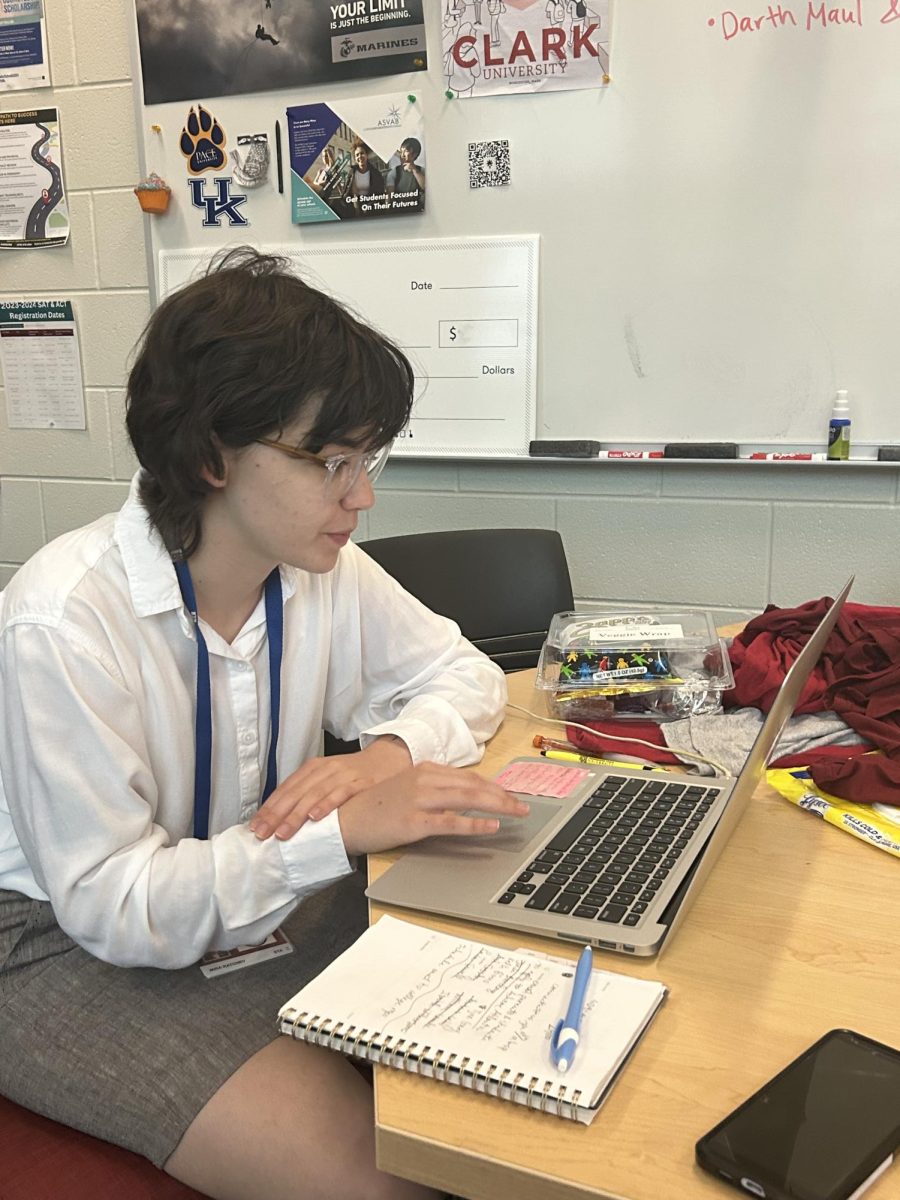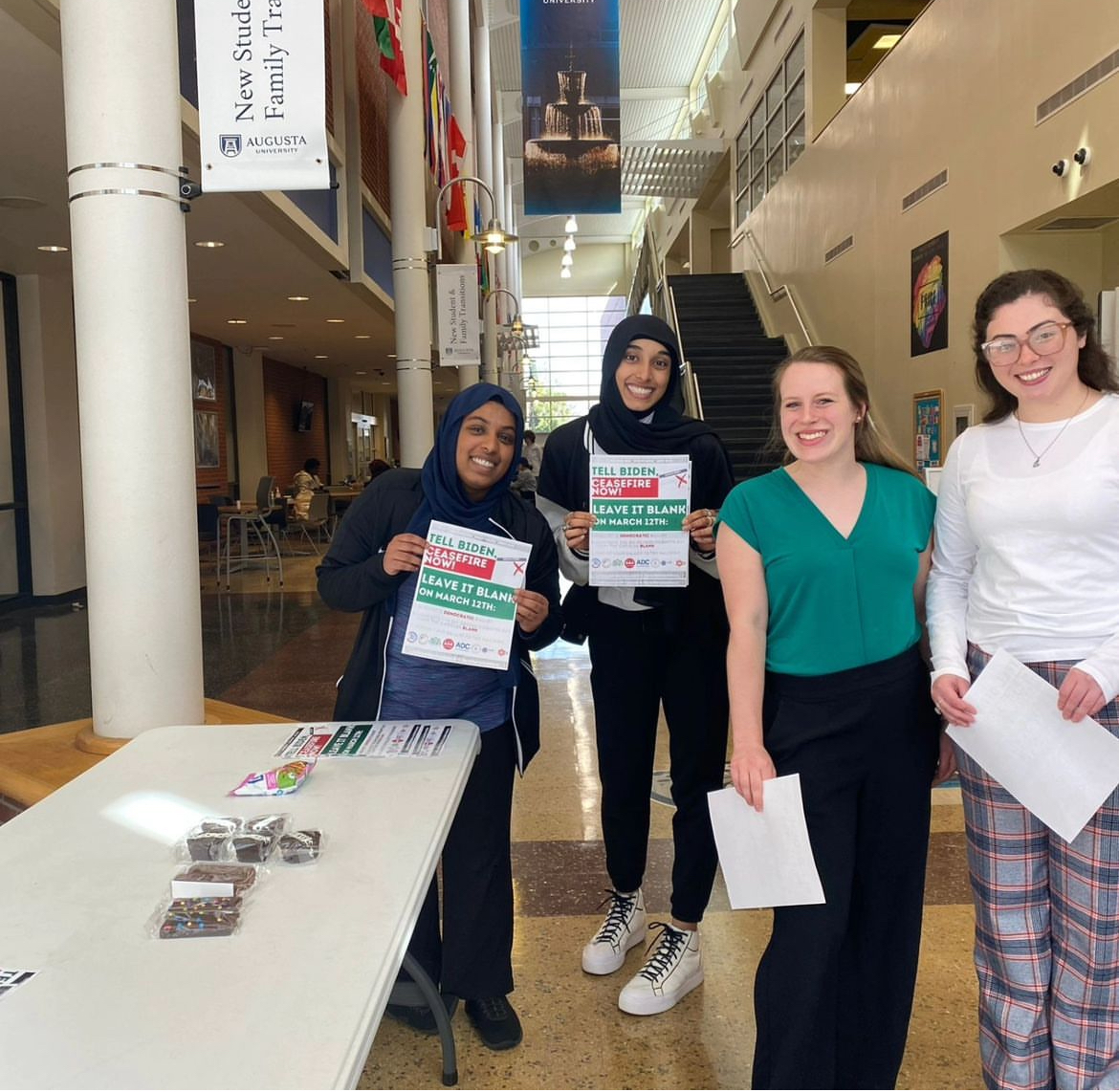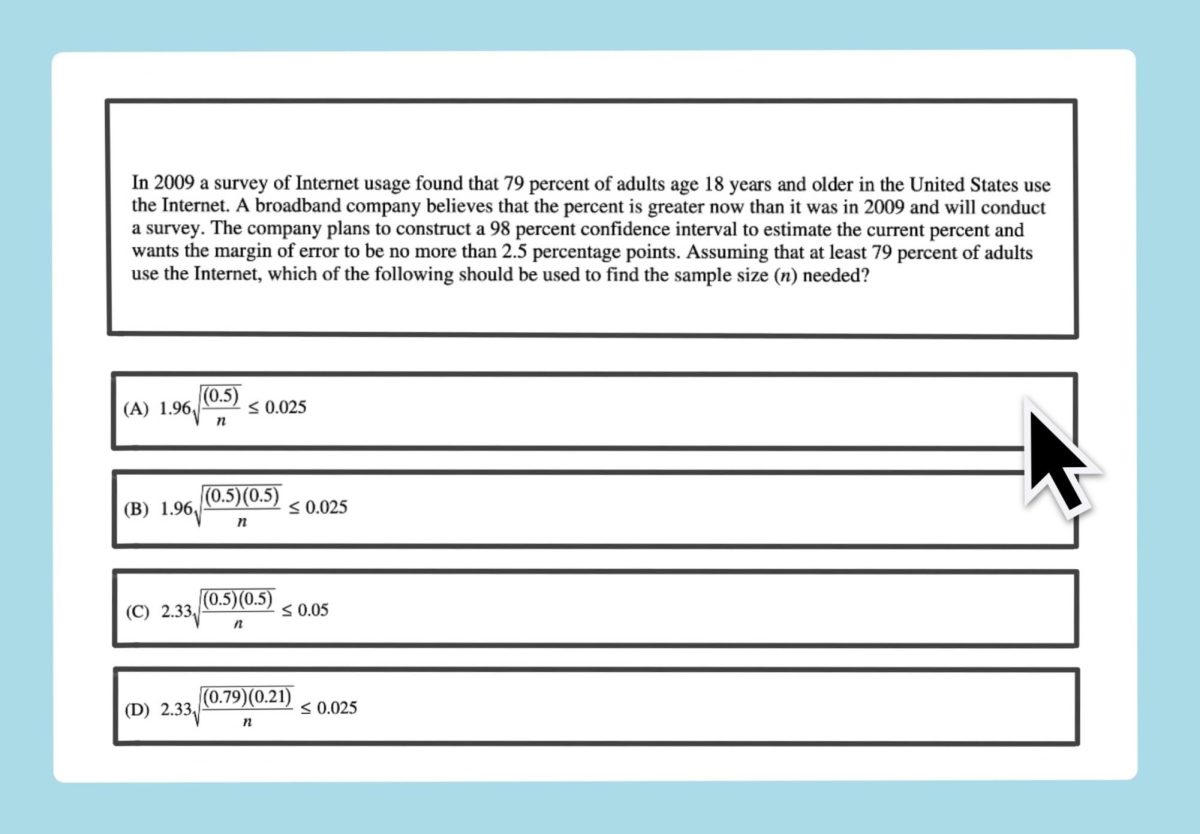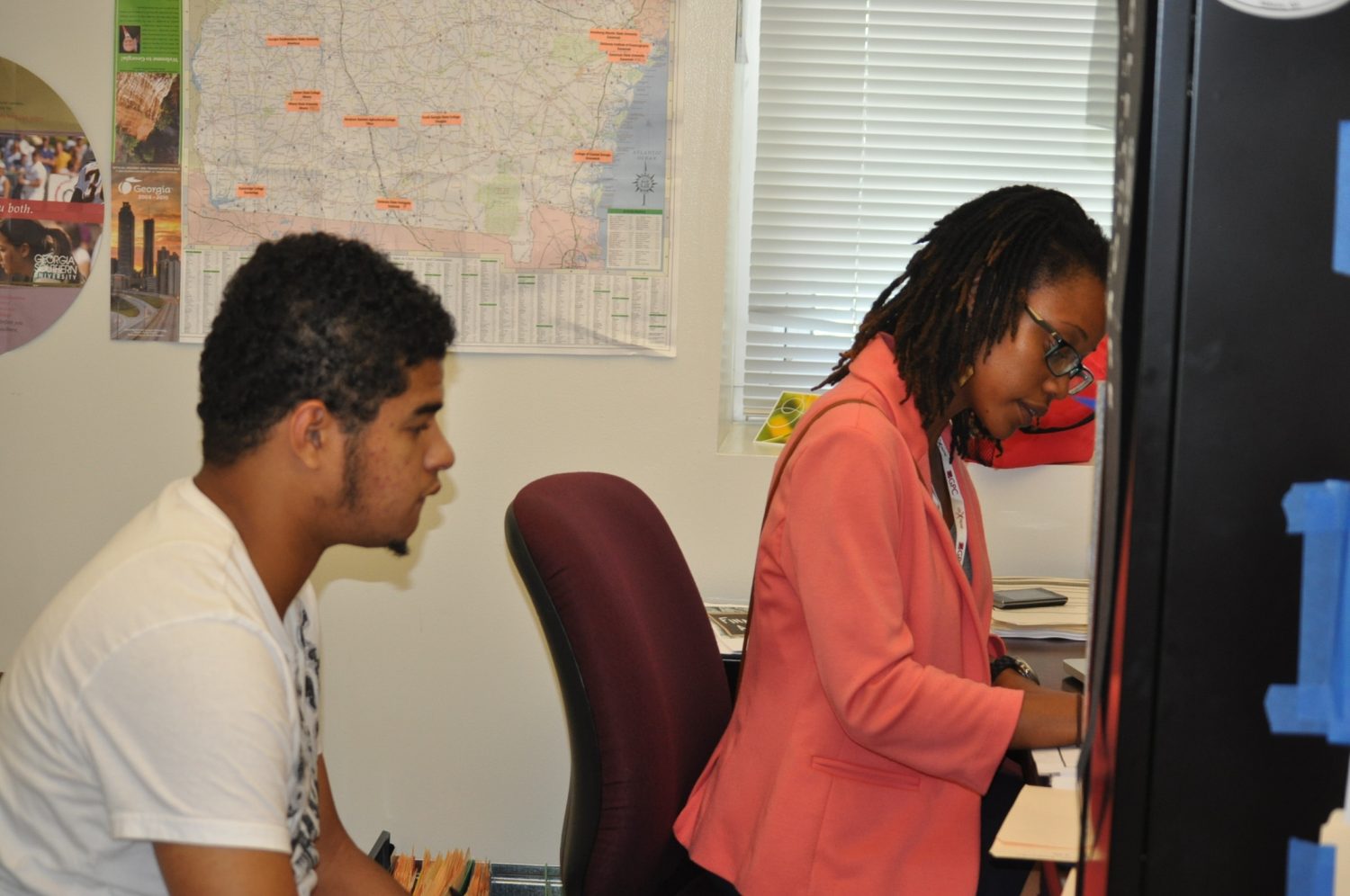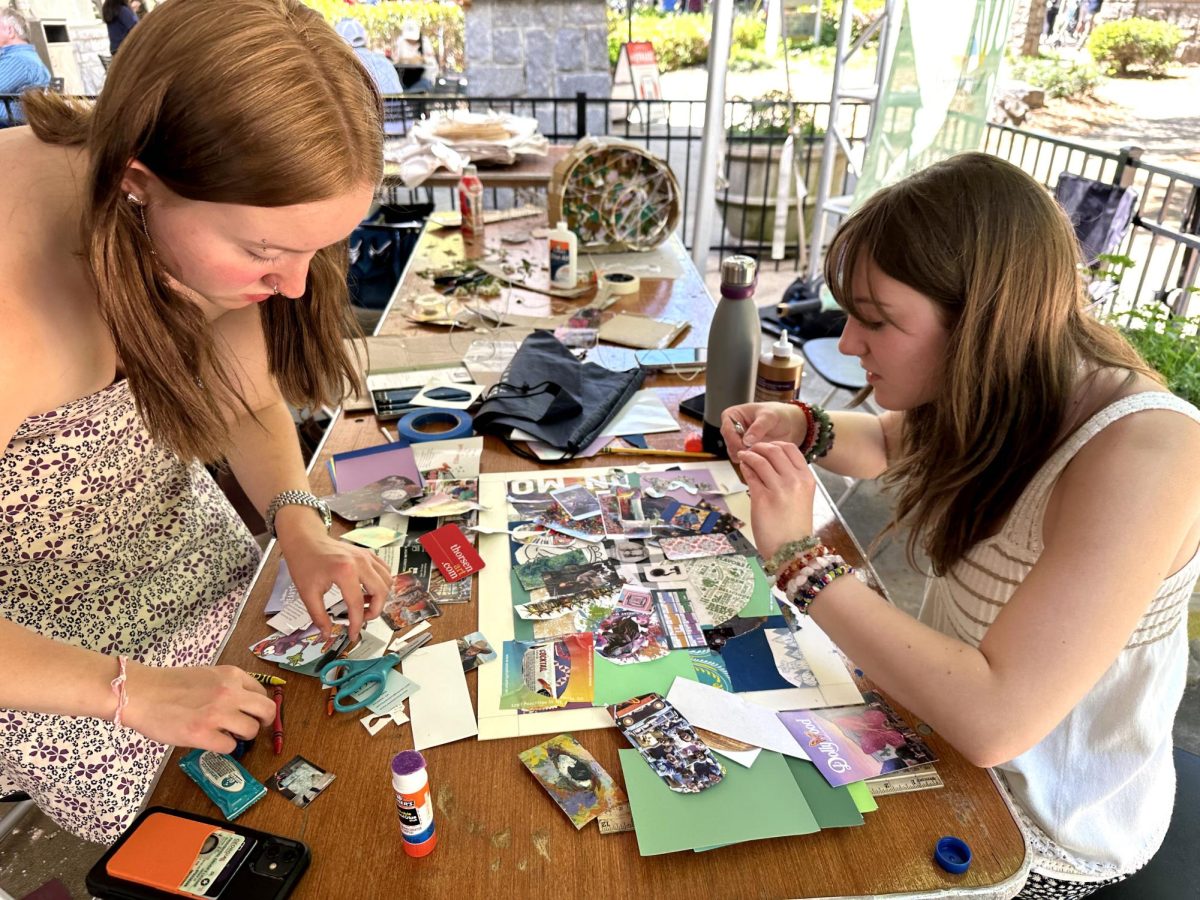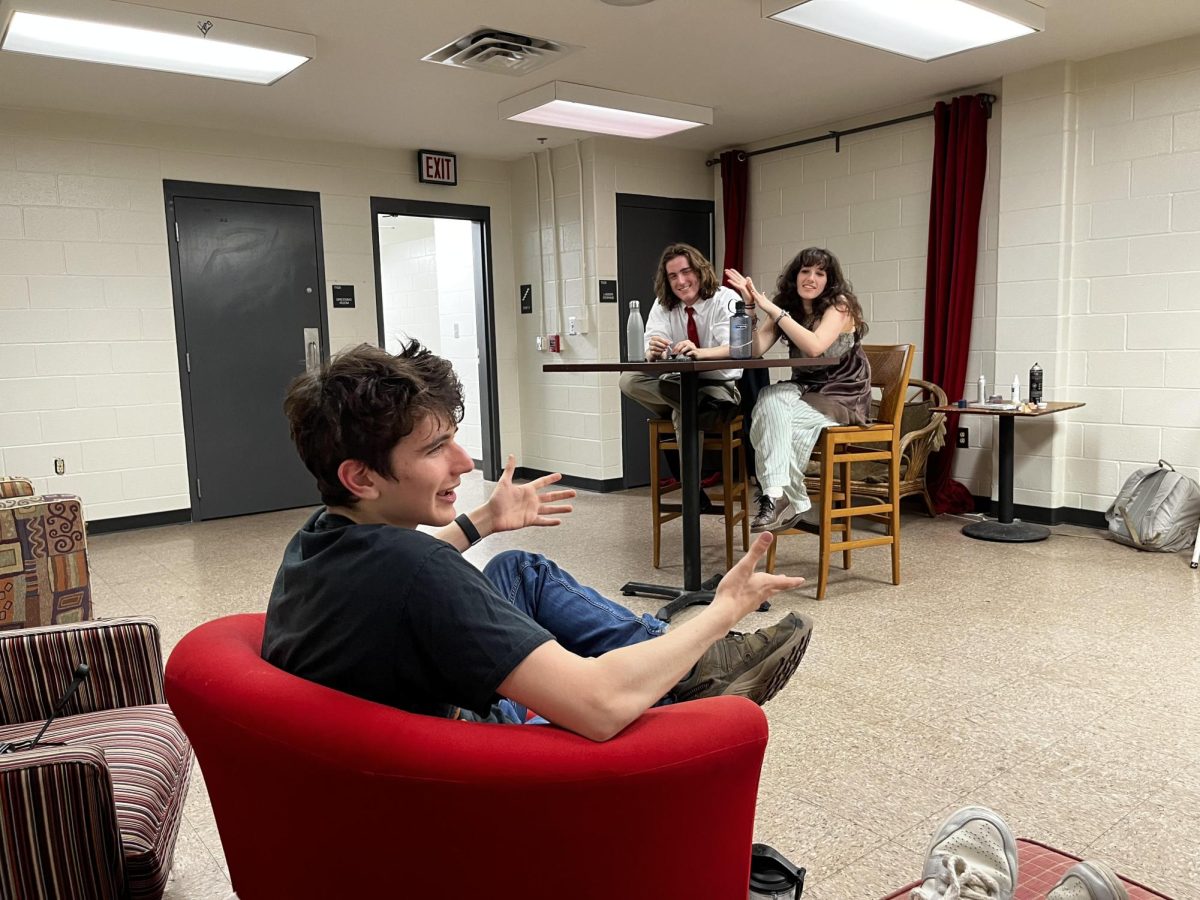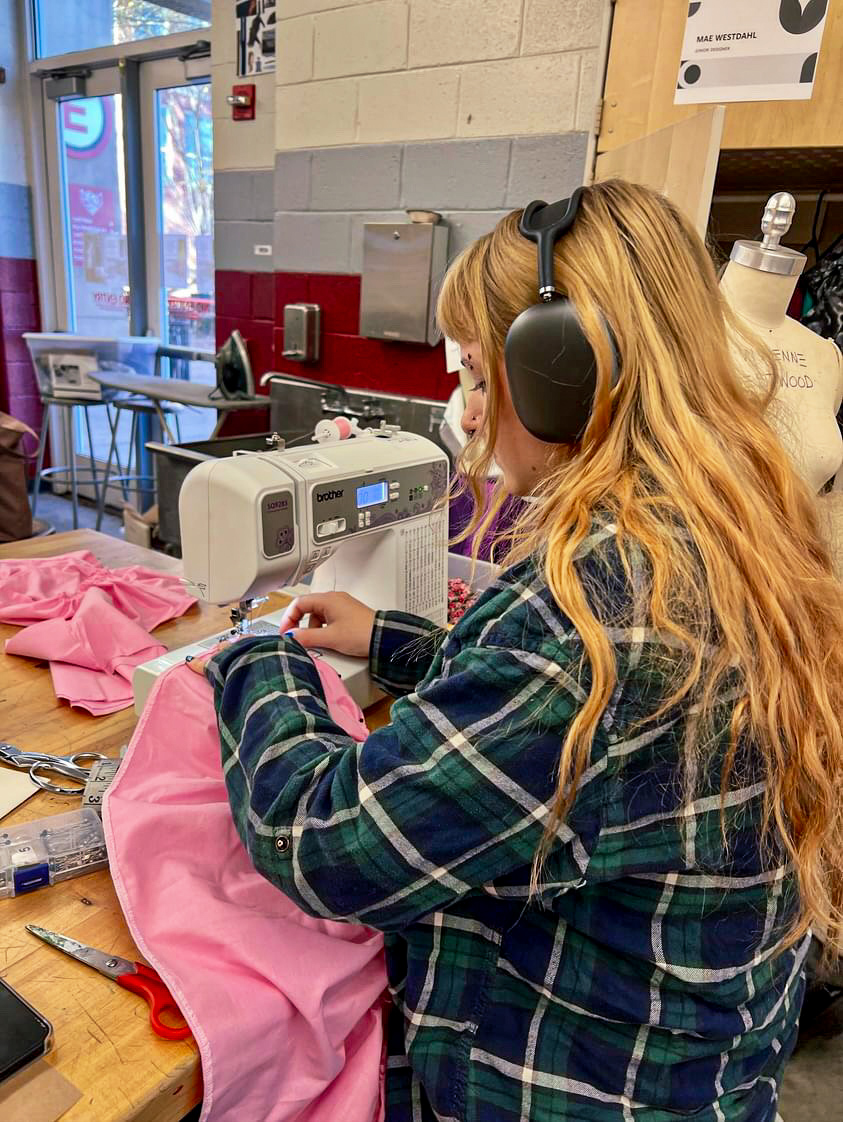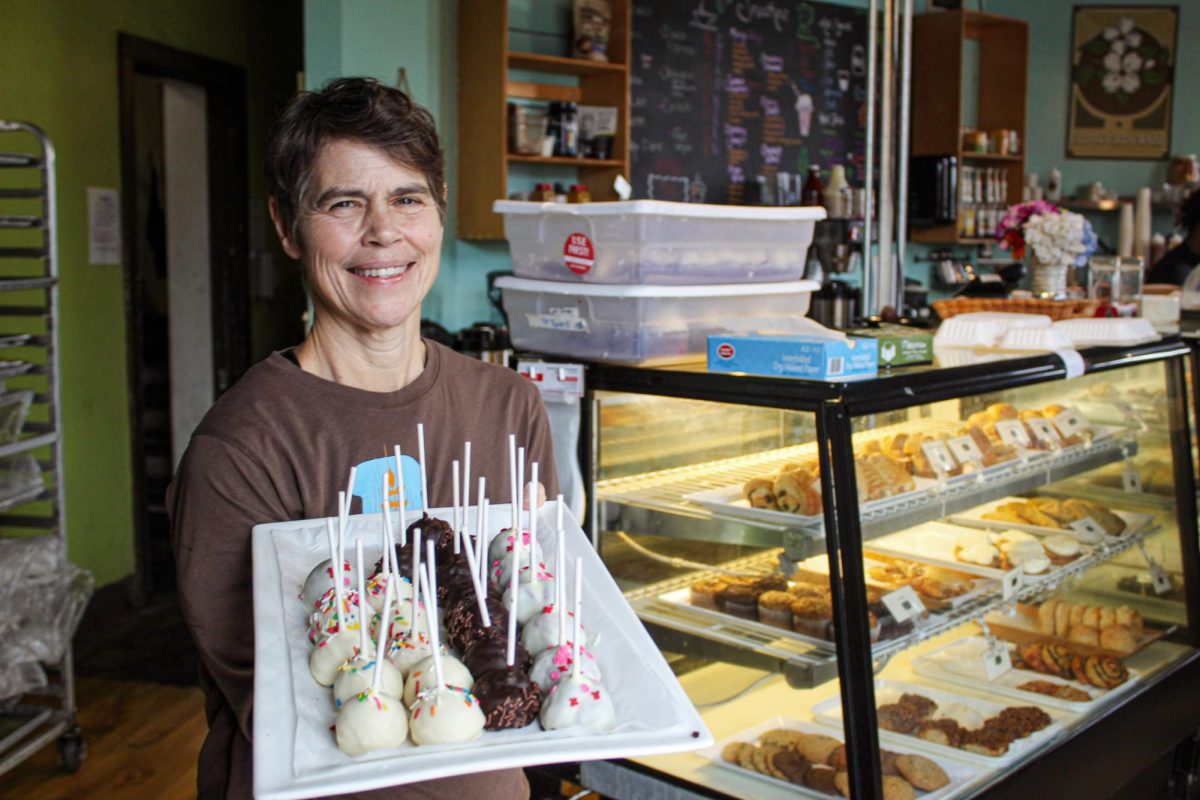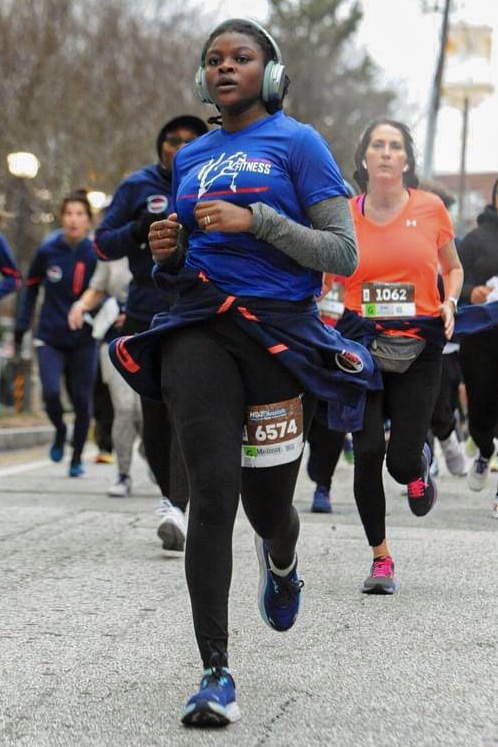By Grace Hawkins and Isabel Olson
[slideshow_deploy id=’58263′]
Grady students see a coach as much more than a figure frantically blowing a whistle, taking breaths only to yell as athletes run endless sprints. A coach is a source of strength, a motivator, an adviser and someone who will push students to reach their full capabilities.
“When you say ‘coach,’ that’s a short word, but it’s a broad word in the sense of the many things that you have to do,” said Earthwind Moreland, Grady’s head football coach. “You’re not necessarily just a coach. You have to sometimes be a father figure. You become a counselor, a parent; you become a lot of things to your student athletes.”
The role of a coach encompasses a broad spectrum, but the many coaches, mentors and advisers at Grady cover the bases. Grady coaches serve their students: on the field, in the classroom with academic clubs and even in the College and Career Connections Center with aspiring college applicants. Coaches and students work together to accomplish a common goal, whether it be winning the championship, the Quiz Bowl or a scholarship to their dream college. When leading a sport, a club, or an individual student, a coach’s purpose is always to support and guide.
“I think the role of a coach is as a mentor, to have someone who has more knowledge, more experience in a particular subject and whose goal is to help the younger individual grow into a greater role, a greater responsibility,” said Andrew Nichols, G3 Robotics coach.
Through the many activities offered at Grady, coaches and mentors guide students from adolescence into young adulthood during one of the most pivotal times of their lives. Focusing on each student individually is an essential part of effective coaching.
“You develop the team by developing the individual, and helping students reach their potential,” said Kevin Hill, chorus and music teacher.
When coaching a team of individuals, a good coach recognizes that all parts make up the whole. In order for a team to succeed, all of its players must develop and improve. Finding the right way to bring each student to his or her utmost capabilities, however, can be a challenging task.
“I think that a coach should encourage people’s strengths,” said Tanisha Peterson, college adviser. Peterson works individually with Grady students who are the first in their families to receive a postsecondary education.
“[All students have] their strengths,” Peterson said, “but [coaches should] allow them to see how that strength can be used towards their goals and opportunities.”
Once students learn to promote their own strengths, the coach has succeeded in his or her essential task, says cross-county coach Jeff Cramer.
“You’re motivating athletes to want to do it for themselves,” Cramer said.
When students come to love an extracurricular, they will work on their own time to grow and excel in their field. In order to instill this self-motivation in their students, coaches must first inspire, motivate and command respect.
“Lead by example,” Moreland said. “It’s hard to follow or listen to someone if they’re not doing the things they’re asking you to do.”
His players confirm that Moreland practices what he preaches.
“He’s always out on the field with us,” junior wide receiver Ahmad Herron said.
Through leadership, encouragement and hard work, a coach works to foster independence in their students and team. Once that independence is created, a coach should step back and let the students shine by their own means.
“A coach guides us, gives us advice [and] lets us figure out what we have to do ourselves,” said Jefferson Martin, G3 Robotics senior.
Nichols, Martin’s robotics coach, uses this approach with his team. Having the students work by themselves to accomplish their goals is a key element to his coaching technique.
“It’s about a release of control,” Nichols said. “Then the students have increasing control and leadership opportunities.”
While this transition to independence and leadership can be drastic and challenging for teenagers, the practice of leadership and responsibility puts forth numerous possibilities for their futures.
“Someone who has developed leadership skills can go out and lead anything they’re passionate about,” Nichols said.
Outside of the robotics shop, athletic and academic coaches also advocate giving students the opportunity to lead, grow and perform on their own.
“If they [the students] are taking the action, then it’s their journey,” said Dawn Killenberg, CCC volunteer. “A coach does not go on the field and play for the player. A coach tries to inspire, motivate and educate from the sidelines.”
From the classroom to the field, and even to the center of the spotlight, extracurriculars give students great opportunities to shine. Though a coach may bring a student to his or her full potential, the coach cannot take full credit for the student’s talents and performance.
“When a show is done, there is no evidence of the director being there,” drama teacher Jake Dreiling said. “A coach is very similar.”
While watching from the sidelines, audience or conductor’s stand, every coach wants their students to succeed in and out of their extracurricular activity.
“I want them to be more than just basketball players,” said Brian Weeden, head boys’ coach. “I want them to excel academically, to be responsible and a role model for others.”
All coaches share Weeden’s dream: that their students will grow to achieve their goals and reap the rewards of their efforts.
“I want them to be successful,” said Paul Nicolson, Skills USA coach. “When I tell them that, I have to clarify, because some of them don’t understand what I mean. I mean that they’re happy, they can do things that they want to do and do [them] successfully.”
The coach-student relationship is a unique bond. Initially, coaches will lead their groups, but at the end of the day they are on the sidelines as the students take to the stage, the competition, and the big game. Though the techniques and goals of each coach may differ, Grady’s coaches have the same motivation for what they do: the prideful joy of seeing their students succeed.

